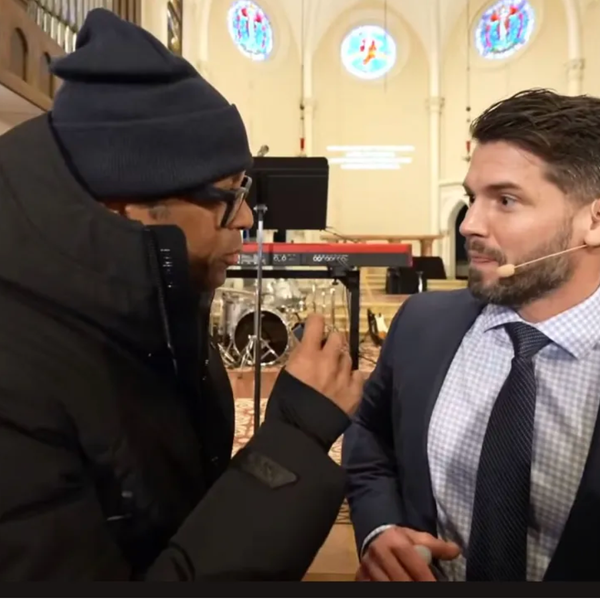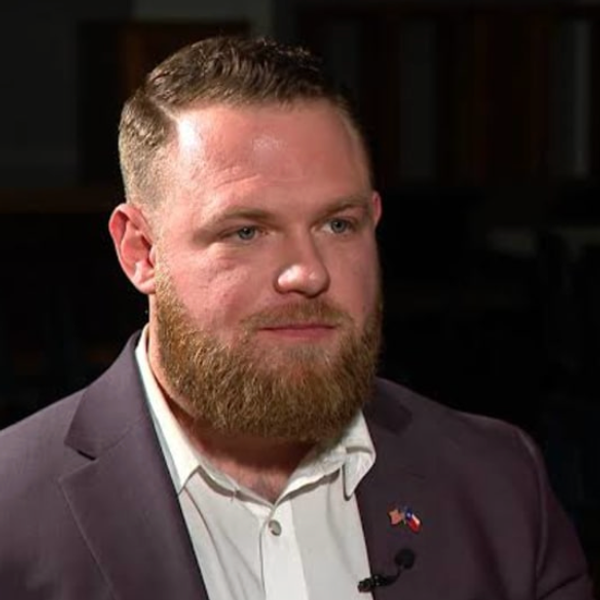
As the 2012 presidential election approaches, a debate has broken out among Democratic-leaning pundits about the wisdom of President Obama’s campaign strategy. Writing in The New York Times, Matt Bai thinks Obama may have made a big mistake by listening to Bill Clinton.
Up until he won the Republican nomination, the Obama campaign appeared set to characterize Mitt Romney, in the immortal words of GOP rival Jon Huntsman, Jr., as a “well-oiled weathervane”—a political opportunist who would pretend to believe anything in order to win.
If there’s a “hot button” issue on which Romney hasn’t done a complete 180 since his days as a Massachusetts pol, it’s hard to think what it is: abortion, gay rights, immigration reform, and most of all, health care.
You name it, and Mitt’s been on both sides of it. It’s a wonder his campaign posters don’t depict him like the Roman god Janus, with two faces looking in opposite directions.
Clinton supposedly argued otherwise. Writes Bai, “The best way to go after Mr. Romney, the former president said, was to publicly grant that he was the ‘severe conservative’ he claimed to be, and then hang that unpopular ideology around his neck.” The thinking was that independent voters might forgive the candidate for sounding like a Republican during Republican debates, “but they would be far more reluctant to vote for him if they thought they were getting the third term of George W. Bush.”
Actually, I quite doubt that Bill Clinton gave such simplistic advice. Regardless, this strategy must have looked particularly wise after Romney’s selection of Rep. Paul Ryan as his running mate. Polled separately, the individual elements of the so-called “Ryan budget” passed last spring by the House Republican majority are terribly unpopular: more tax cuts for the rich, converting Medicare to a voucher program, along with sharp cuts to social safety-net programs like Medicaid, food stamps, Pell grants, etc.
But, Bai continues, “in recent weeks, starting with the first debate, the challenger has made a brazen and frantic dash to the center, and Mr. Obama has often seemed off balance, as if stunned that Mr. Romney thinks he can get away with such an obvious change of course so late in the race. Which, apparently, he can.”
Indeed, polls showing Obama comfortably in the lead shifted markedly in the challenger’s favor after the first debate. Possibly the president was overconfident, disdainful of Romney’s high-pressure salesman-like approach, perhaps also disdainful of the TV game show aspect of the debates.
Whatever the reasons, Obama’s phlegmatic, disinterested performance ended up making him appear older, less energetic, and—always important in an American political context, less optimistic than Romney—who at age 65, is actually 14 years his senior.
Awakening to the danger, Obama dominated the next two debates. On the defensive, Romney spent the Long Island townhall debate arguing that his promised 20% across-the-board tax cuts won’t really cut taxes, which begs the question, “then why bother?” He devoted the foreign policy debate to endorsing Obama administration policies on Syria, Iran and Afghanistan that he’d previously condemned. No warmonger, Mitt.
Nevertheless, although state-by-state polls have shown President Obama rebounding and very likely to score an electoral college win, nervous Democrats fear that permanent damage was done. Hence the return of what Obama calls “Romnesia” as a theme, with the president having a good time on the campaign trail mocking his opponent’s multiple positions to laughing audiences of loyal supporters.
“Romnesia’s” definitely funny, but it misses the mark. Mitt’s less a flip-flopper than a particularly shameless opportunist. Writing in The New Republic, Alec MacGillis argues that the whole business of “framing” political opponents can be overdone anyway. “Ninety-nine times out of 100, the line of attack that works best is the one that really rings true.”
A while back I observed that “how anybody purports to know what the GOP candidate actually thinks about any issue other than the size of his own offshore bank accounts beggars my poor imagination.”
But the real point is that it hardly matters what Romney REALLY thinks. His is a Trojan horse candidacy. Obama needs to make that clear in the campaign’s closing days. Make no mistake: elect Moderate Mitt and you get the whole right-wing GOP agenda, Ryan budget and all. Anybody who thinks a President Romney would restrain the Tea Party and stand up to the Bush era neoconservatives on his foreign policy team can’t have been paying attention.
However, there may be good news for Obama in all the bad news. Amid the catastrophic destruction of Hurricane Sandy, Romney’s pronouncement that it’d be a good idea to turn the responsibilities of the Federal Emergency Management Administration over to private enterprise makes him look like a crank—and a heartless one at that.
This time, I doubt Mitt has enough time to talk his way out of it.
Photo by Gage Skidmore via Flickr.com








